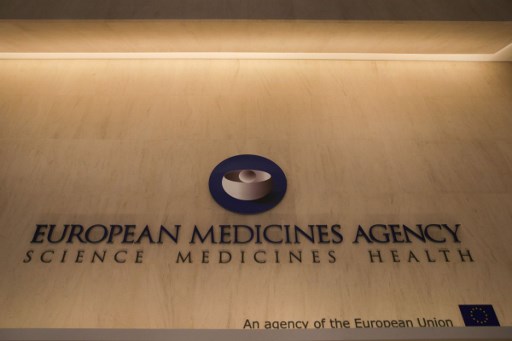
by Danny KEMP
Agence France Presse
THE HAGUE, The Netherlands (AFP) — The EU’s medicines regulator on Tuesday dramatically advanced the decision day for the Pfizer-BioNTech coronavirus jab under pressure from Germany, meaning vaccinations in the bloc could start by the year’s end.
The Amsterdam-based European Medicines Agency’s announcement that it will meet on December 21 instead of December 29 to decide whether to authorise the shot, followed a growing backlash from desperate EU countries.
Europe has been lagging behind as post-Brexit Britain — the EMA’s former home — became the first country in the world to grant emergency approval for the vaccine, swiftly followed by the United States, Canada, Singapore and Bahrain.
The EMA said in a statement that it had received “additional data” from the company on Monday that was requested by the EMA committee that examines medicines for human use.
“An exceptional meeting of the (committee) has now been scheduled for 21 December to conclude if possible,” the EMA said in a statement.
The EMA added that it would reach its decision “only once the data on the quality, safety and effectiveness of the vaccine are sufficiently robust and complete to determine whether the vaccine’s benefits outweigh its risks.”
The agency announced no change to the planned January 12 date for a decision on the Moderna vaccine.
European Commission chief Ursula von der Leyen welcomed the announcement, saying it meant vaccinations would likely start before the end of the year.
“Every day counts — we work at full speed to authorise #COVID19 vaccines that are safe and effective,” she said on Twitter.
“Likely that the first Europeans will be vaccinated before end 2020!”
Germany had earlier piled pressure on the EMA, saying it wanted it to approve the vaccine before December 25.
German Health Minister Jens Spahn told a press conference in Berlin. “We want to start vaccinating in Germany before the end of the year.”
– ‘Each day counts’ –
Berlin had added its weight to earlier calls led by Hungary and Poland for the EMA to move faster.
Hungarian Prime Minister Viktor Orban told public radio on December 4 that Brexit had made Britain “more able to take action” and “assert its interests”.
Then the pressure mounted a summit of EU leaders last week.
Polish Prime Minister Mateusz Morawiecki said he had urged the EMA to grant authorisation “as quickly as possible”, adding that “several European leaders” had backed him.
He demanded the agency bring forward its decision day, adding: “Each day counts, each day means enormous human losses, new infections, enormous losses for the economy.”
Italy joined the growing clamour, with Health Minister Roberto Speranza saying on Tuesday that he hoped the EMA “will be able to approve the Pfizer BioNTech vaccine ahead of schedule.”
Criticism of the EMA was further fuelled by a hack of the agency announced earlier in December, in which data from both the Pfizer-BioNTech and Moderna vaccines was taken.
The agency had previously said the reason Britain, the United States and Canada moved faster was that they approved short-term emergency use without licensing, whereas it is going for a full one-year conditional licensing of the vaccine.
It insisted staff were working around the clock to study lab data and results of large clinical trials as they come in.
“Whilst speed is of the essence, safety is our number one priority. These vaccines will be given to millions of people in the EU and we are keenly aware of the huge responsibility we have,” EMA chief Emer Cooke told MEPs last week.
The Irishwoman, who only took the reins at the agency a month ago, added however that the goal was also to ensure a rollout of the vaccine across all 27 EU countries at the same time.
“This means that all member states, big or small, will benefit from the joint work done at EU level and that all member states can start preparing for vaccine campaigns,” she said.







